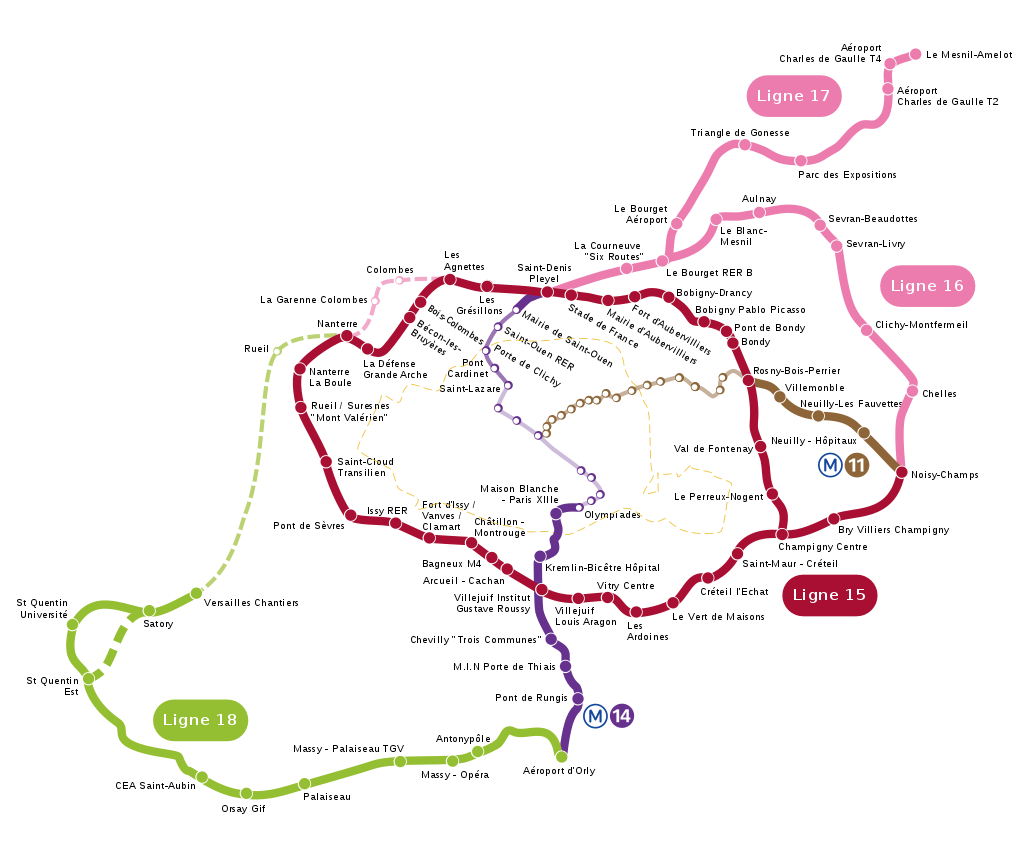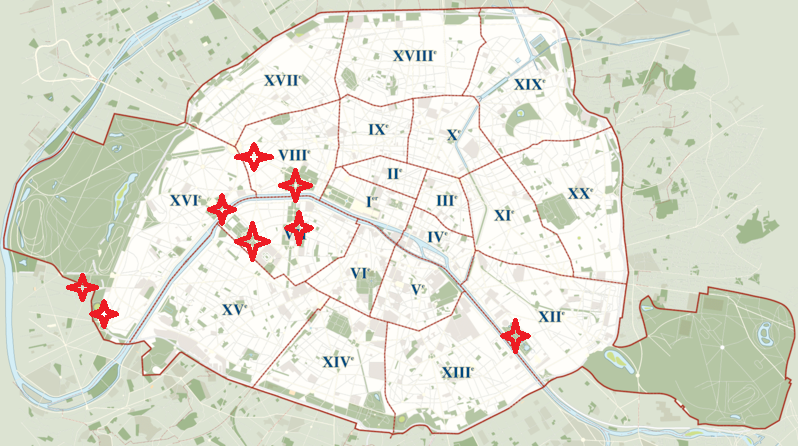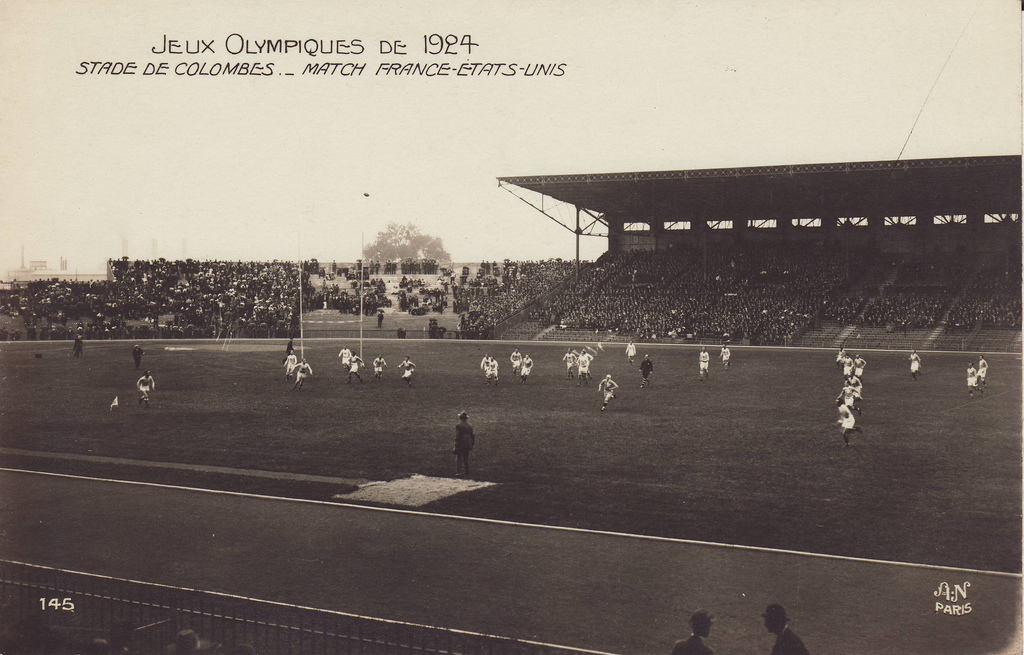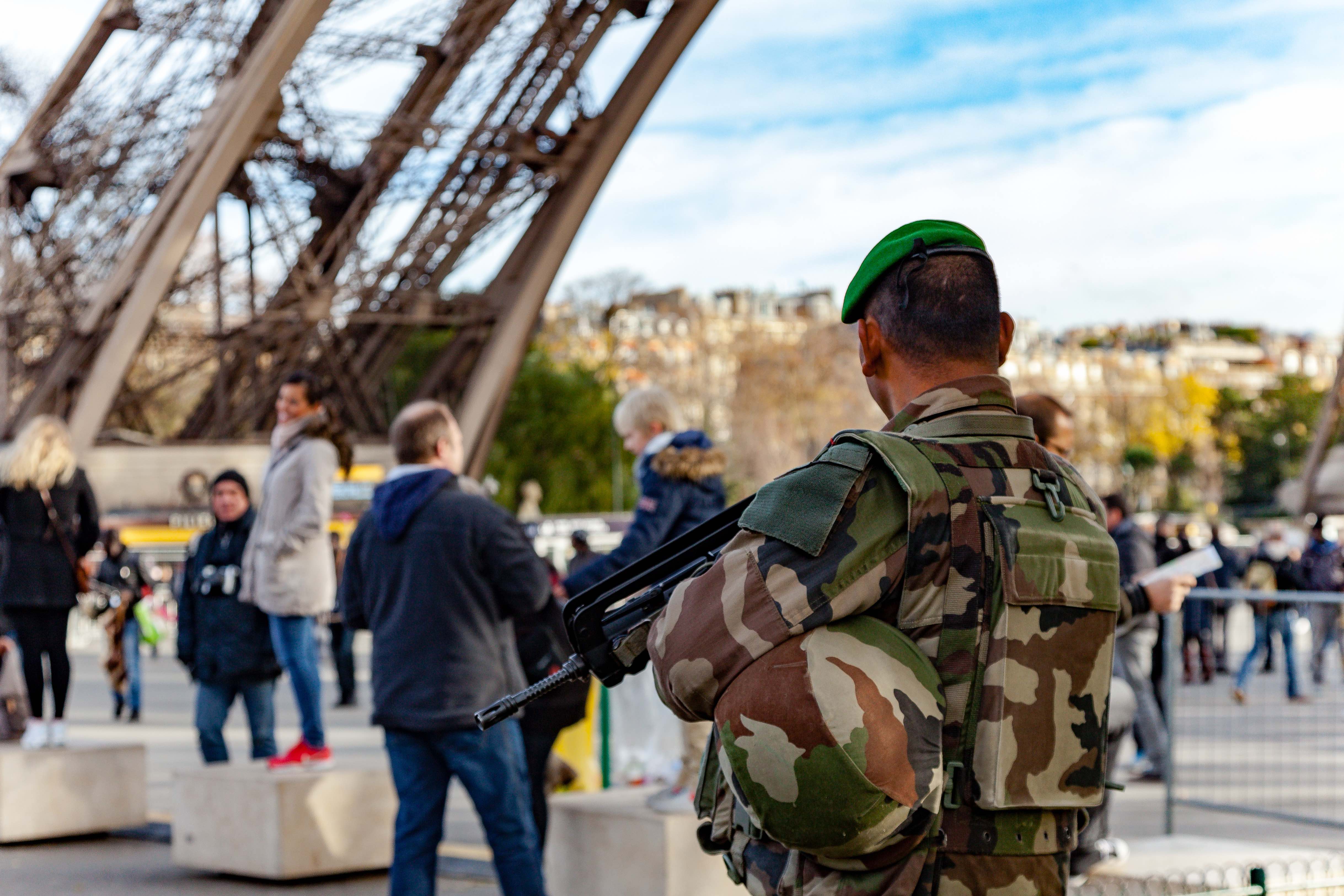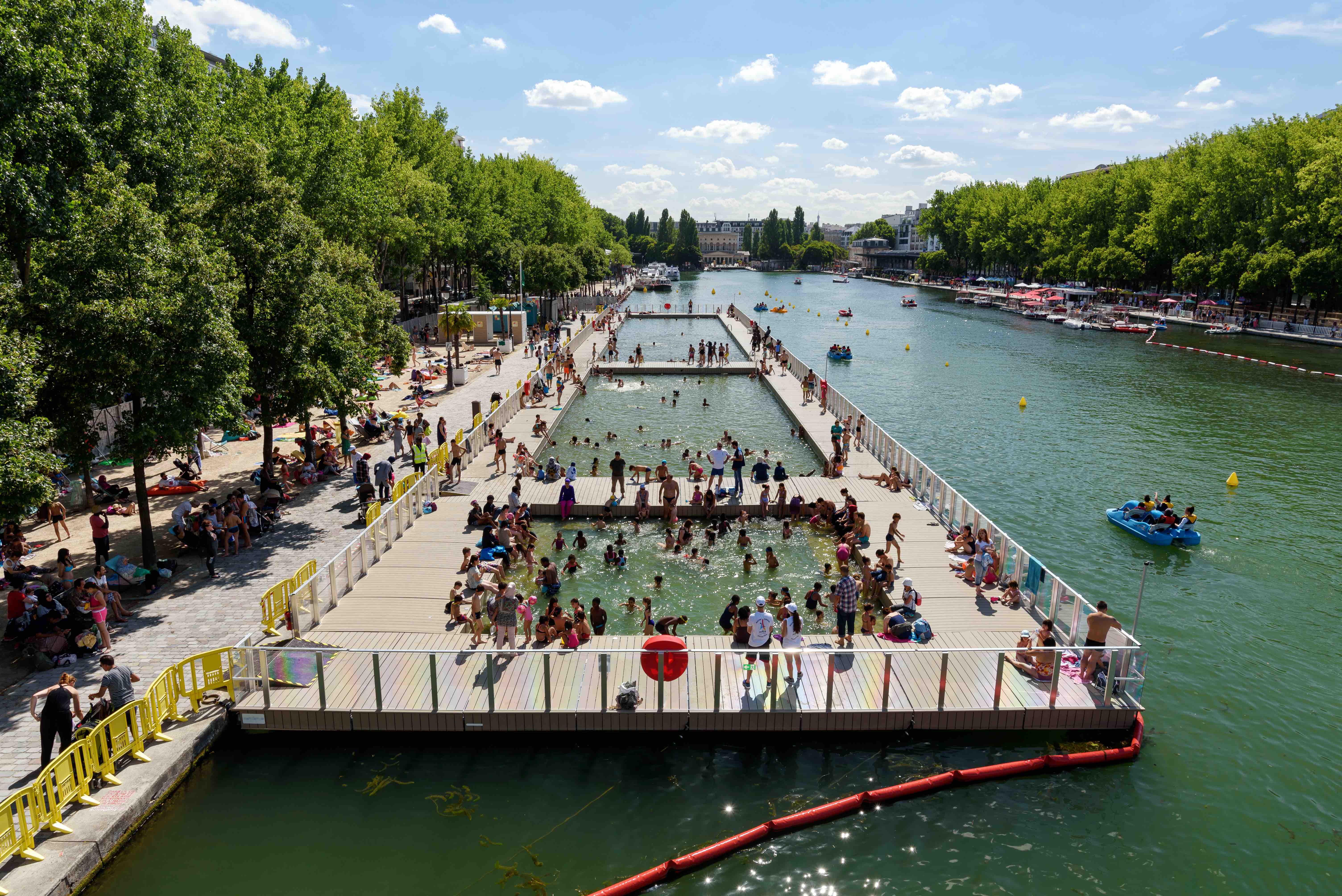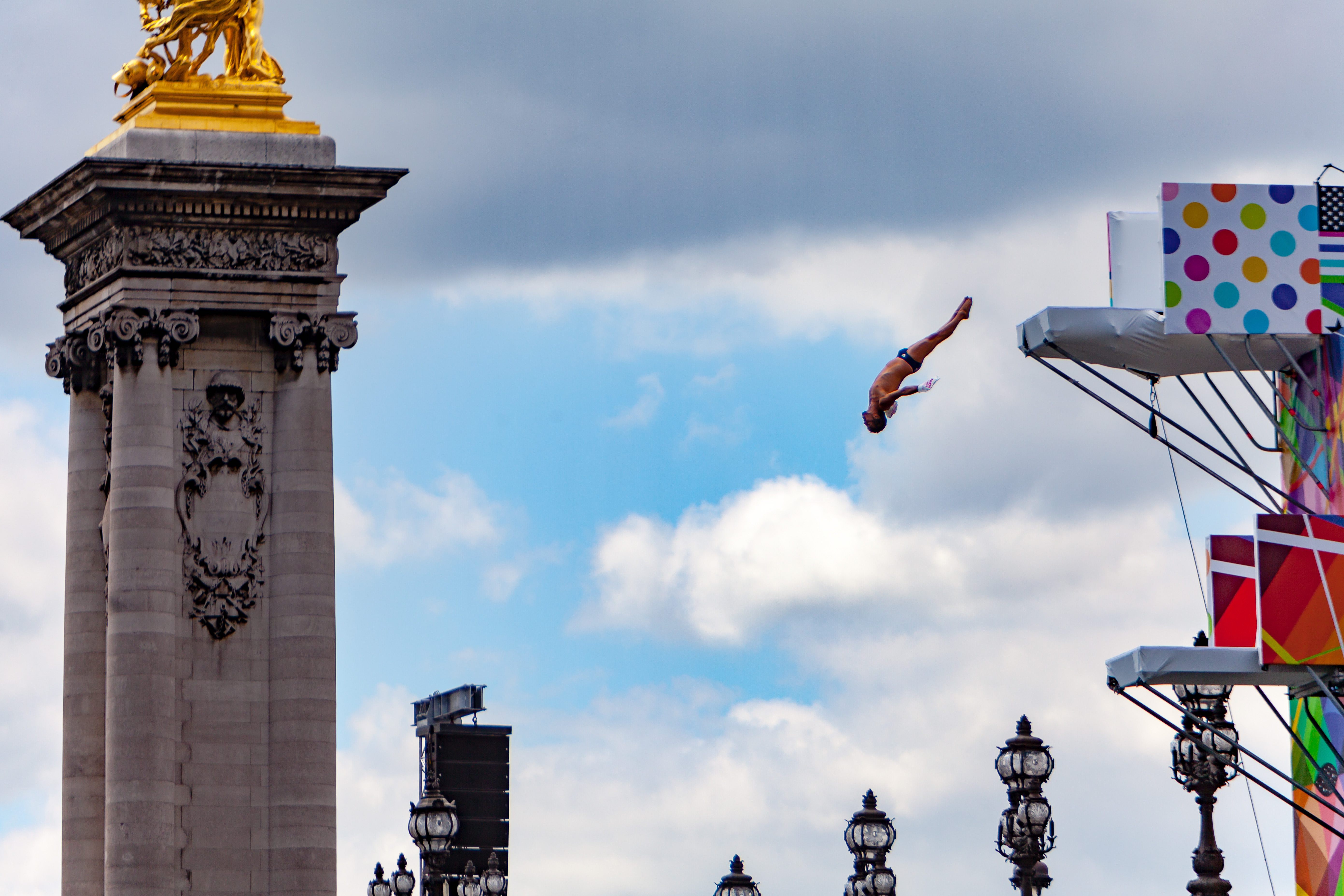Paris Olympics: Games of Change
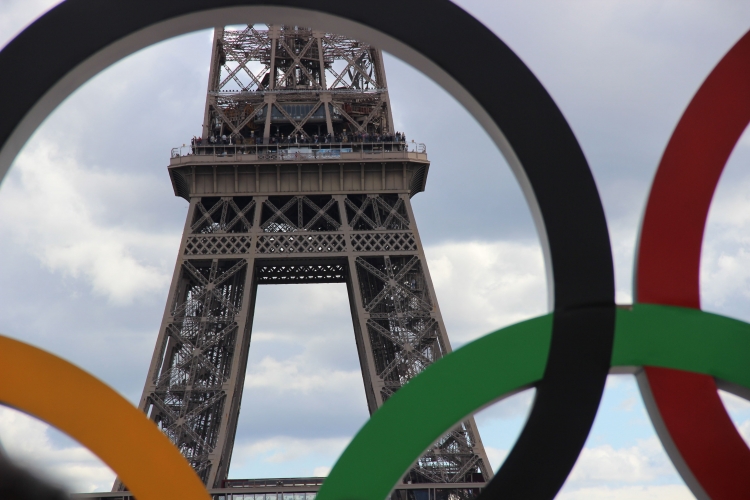
While it is evident that Paris will change in preparation for 2024, some have already begun, and from new metros to new arenas, the changes are destined to transform Paris forever. France is a country still nostalgic about its great past, yet is always molding towards a better future, and summer of 2024 will be the first time in exactly 100 years that the City of Light will light up TVs worldwide as the Olympic torch passes from Beijing to Paris.
As Paris prepares for hosting the Olympic Games 2024, Paris is also preparing for the aftermath: to give the sports centers and all other construction work back to the French. Not only will popular tourist destinations such as the Champ de Mars and the Chateau de Versailles temporarily disguise themselves to host sporting events, but today's Parisian underground and outskirts will be hard to remember come the year 2030.
The Paris Metro
Ile-de-France is planning to build in not 2, not 3, but FIVE new underground lines, as well as extending an existing one.
Image Credit: Wikimedia/HektorWith a working name of Grand Paris Express, the metro line 14 is to be extended from its current terminal, Olympiades, down through the south of Paris leading to its new terminal, the Orly Airport. On its other end, line 14 will extend past Saint-Lazare to Porte de Clichy and continue into the suburbs, reaching Saint-Denis Pleyel.
The other dramatic and permanent change expected from the Olympic preparations is the Charles de Gaulle Express. It will be a fast train, connecting the CDG Airport to Gare de l'Est in the heart of the 10th arrondissement.
The primary goal of the city of Paris in their preparations for the 2024 Olympics is its following sustainability. Here is a sneak peak of further structural changes within Paris and around to expect as we prepare to host the world, and how Paris is planning to transform into an athletic festival:
Image Credit: Wikimedia/J.M. Schomburg edited by Nina Rines
-
Champ de Mars—For a short while, running out to the Champs to sip some wine and sunbathe with friends between summer classes you risk tracking a lot of sand back into school. From the foot of the Iron Lady to Ecole Militaire, the green lawn will turn a yellow-white as it is filled with sand to host the Olympic beach volleyball tournaments.
- Esplanade des Invalides—Don't plan on turning around and escaping to our other favorite green lawn, bordered by Napoleon's tomb and the most beautiful bridge of Paris. Rather than a calm promenade, you might see some arrows flying through the sky as the Esplanade becomes the site for archery. Don't worry, the return of Napoleon's archers is quite unlikely.
- Grand Palais—Mirroring the building's beautiful blend of edgy glass ceilings with its classical walls, the classical sport of fencing will be seen from this Palais throughout the world, alongside Taekwondo. It is difficult to think of a unique combination of sporting events to complement the unique structure of the Grand Palais.
- Chateau de Versailles—True to Versailles' history of equestrian art, in 2024 not only Parisians will be making the trip out to practice this popular sport. Chateau de Versailles will be used to host the Olympic equestrian sport. What a view the spectators will have!
- Parc des Princes and Roland-Garros are to be used for the purposes they serve today: soccer and tennis, respectfully. Roland-Garros is already known throughout the tennis world as the location for Tennis world championships held every year.
- Stade de France—The famous stadium just outside of Paris in Saint-Denis is often visited for rugby and international soccer games. Many Parisians and AUP students are familiar with this stadium, so watch out for recognizable details as you watch the ceremonies, Opening and Closing included, as the games begin in 2024.
- Olympic swimming pool and arena—Saint Denis will be a hotspot during the Olympic games, as it holds not only the ceremonies but also will be building an entirely new Olympic swimming pool and arena. It will host swimming, synchronized swimming, and diving competitions throughout the games, yet the project has the determination to give it back to the French: allow use for school teams, various athletic teams, as well as for the national team to practice in. "It is a fact that it must serve the territory, associations, and schoolchildren," says Laurent Russier, mayor of the city, although admitting it will be necessary to fight.
- Stadium Yves du Manoir—Blast from the Past: host of Paris Olympics 1924—located in Colombes (northwest of Paris), the stadium is the former residence of Racing 92, a French rugby team. It will be renovated to host the Olympic field hockey tournament, and following the summer and a filling of ice, will be used for the local hockey team.
Image Credit: Wikimedia/unknown, Postcard #145 of the edition Armand Noyer (1864-1954)
The Eiffel Tower will experience some changes as well in preparation for the Paris Olympics, but in the aspect of security, rather than for a certain sport. Being the world's most visited monument, an increase in security for antiterrorist measures include setting up a bulletproof wall around the Tower and its surrounding gardens (Champ de Mars not included). The metal cage surrounding the Tower was meant as a security measure for the Eurocup 2016, hosted in Paris, and will be torn down and replaced by a structure more secure and less disrupting to visitors and photos.
Image Credit: Shutterstock/Guillaume Louyot Onickz ArtworksThe bulletproof glass is planned to be as high as 2.5 meters and set up along Avenue Gustave Eiffel and Quai Branly while making it clear to provide a good view of the structure itself. This nine-month, 30 million euro security installment is being coupled with two-year restoration project to repaint the 128-year-old iron tower and a refurbishment of elevators. In total, this project to restore the Eiffel Tower is to last over the next 15 years, with over half the maintenance and all visible changes to be done in time for the 2024 Olympics, and expected to cost in total around 300 million euros.
And what about the rumors of a clean Seine? They're in-seine!
Image Credit: Shutterstock/Tommy Larey
Mayor of Paris, Anne Hidalgo, has high hopes to make the Seine a safe and clean place to swim in, eager to see Olympic swimmers use the river from Notre Dame past the Eiffel Tower. Casual swimming was banned in 1923 due to pollution, and while the Seine's conditions have improved through environmental efforts, swimming is still banned with a whopping 15 euro fine.
Hidalgo announced on May 16th her goals for the clean Seine, with the first section of the Seine, Bassin de la Villette, becoming the first clean and swim-able water, sectioned off and filtered in the wide section of Canal St. Martin north of the city. “Thanks to the Olympic Games we’ll be able to see to it that the water in the Seine is clean water," states Hidalgo, determined to use the momentum of the Olympic preparation to achieve this environmental goal.
Image Credit: Shutterstock/Guillaume Louyot Onickz Artworks
As the Olympics draw closer, Paris is determined to fuse the old with the new, traditional and modern, innovative and sustainable, 1924 and 2024 as it progresses further into the 21st century—and we will get to see it all unfold before us.

